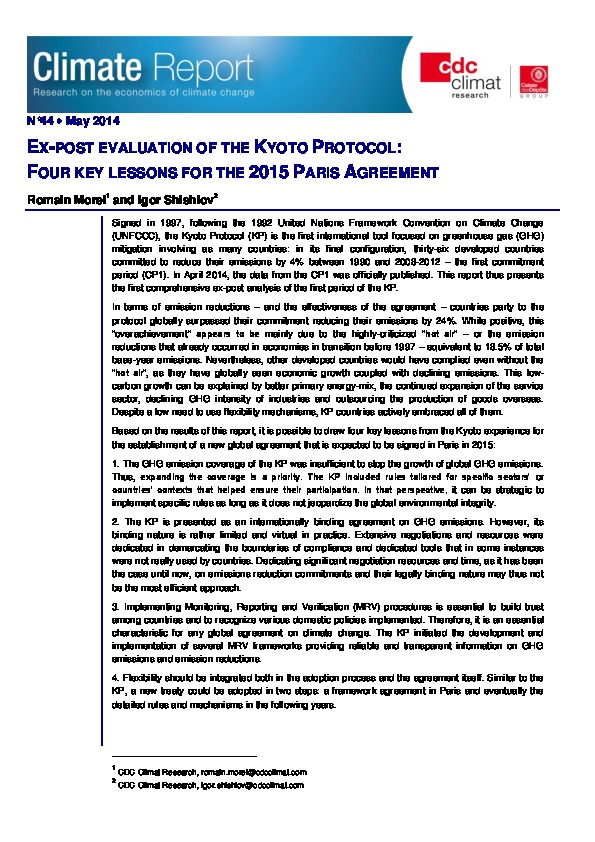Ex-post evaluation of the Kyoto Protocol : Four key lessons for the 2015 Paris Agreement
Signed in 1997, following the 1992 United Nations Framework Convention on Climate Change (UNFCCC), the Kyoto Protocol (KP) is the first international tool focused on greenhouse gas (GHG) mitigation involving as many countries : in its final configuration, thirty six developed countries committed to reduce their emissions by 4% between 1990 and 2008-2012 – the first commitment period (CP1). In April 2014, the data from the CP1 was officially published. This report thus presents the first comprehensive ex-post analysis of the first period of the KP.
Based on the results of this report, it is possible to draw four key lessons from the Kyoto experience for the establishment of a new global agreement that is expected to be signed in Paris in 2015 :
1. Expanding the coverage : striking a balance between overall environmental integrity and flexibility for specific circumstances
2. Removing the virtual specter of internationally legally binding commitments and limiting the focus on methods of compliance
3. Focusing on MRV processes
4. Providing flexibility in the agreement and its adoption process
